Instead of posturing as a self-righteous pacifist, Germany should pull together a European naval mission in the Persian Gulf both to show Iran that Europe has red lines and to bolster European credibility in the face of the Trump administration’s bullying, argues Constanze Stelzenmüller. This article originally appeared in the Financial Times.
The great American satirist and mathematician Tom Lehrer introduced a live recording of his 1965 song “Send the Marines” with the remark: “It has been a nervous year, and people have begun to feel like a Christian Scientist with appendicitis.” The same could be said of policymakers in Berlin in 2019, who are staring at an exceedingly unpleasant dilemma. It is to no small degree of their own making.
A nasty spat has erupted over Germany’s refusal to join a US-led naval mission to protect the Strait of Hormuz, one of the world’s most important oil trading waterways. Is Germany being prudent — or is it an unreliable ally?
Despite their attempts to salvage the Iran nuclear deal of 2015, from which President Donald Trump unilaterally withdrew the US last year, German diplomats are fully aware of Iran’s nefarious role in destabilising the Middle East and supporting Islamist terrorism.
Now, Tehran has broken international maritime law with acts of state piracy, seizing a British tanker and harassing other ships moving through the narrow shipping lane that links the Persian Gulf to the Gulf of Oman and Arabian Sea. As a result, the oil price is spiking; so are insurance premiums. Iran is clearly attempting to multilateralise its conflict with the US, pulling in Europe.
The Trump administration’s whipsawing policies have stoked tensions in the Gulf: first the withdrawal from the deal, then a policy of “maximum pressure” with crippling sanctions and demands amounting to terms of surrender. Threats of military action alternate with offers of talks, yet there is no sign of a plan for diplomacy. In June, Mr Trump ordered air strikes and then immediately reversed. No wonder the Iranians are unimpressed and the Germans fear being dragged into a shooting war.
American efforts to shame Germany into joining the mission in the Gulf haven’t exactly helped. When the parliamentary ombudsman for the German armed forces said the German navy might not have enough available ships, the US Embassy in Berlin wrote on Twitter: “Suggestion: the largest economy in Europe could buy more ships?” Other European countries have navies too, yet it is only Germany that is being singled out.
So now even the staunchest transatlanticists in Berlin are resolutely deaf to the call from Washington. Foreign minister Heiko Maas says Germany will seek to rope in other European states (notably France) for an EU observer mission that would collect information about attacks, but not be able to escort ships or protect them militarily.
A toothless naval mission would be a terrible idea. At stake for Germany is its own national interest, and the respect and solidarity of its neighbours. Germany relies less than France or the UK on the shipping route through the Strait, because it gets its own energy imports mostly from Russia and Norway. Yet, as the world’s third largest exporting nation and one of the most globalised economies, it needs unhindered access to international shipping lanes. Berlin might also want to call on its neighbours for help in the future; a German and a Norwegian tanker were shot at off the Iranian coast in June.
Germany’s posturing as a self-righteous pacifist is unconvincing. It has been participating in the robust EU naval antipiracy mission, Atalanta, off the Horn of Africa for years. The Iranian navy is a tougher adversary than Somali pirates. But a European show of calm determination, co-ordinated with the US-led effort, to prevent Tehran from playing one against the other could have a real deterrent effect.
It would show Iran that Europe’s “good cops” have red lines too. That, in turn, might make offers of diplomatic de-escalation more effective than they are now. And it would bolster Europe’s credibility in the attempt to stand up to the Trump administration’s bullying. That is the prudent course of action.

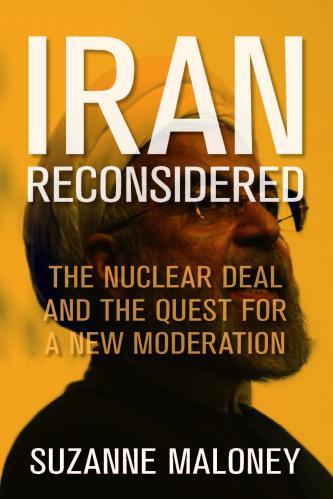
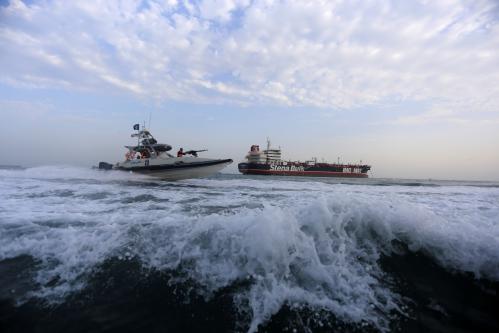
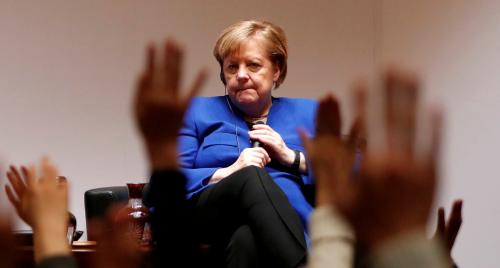
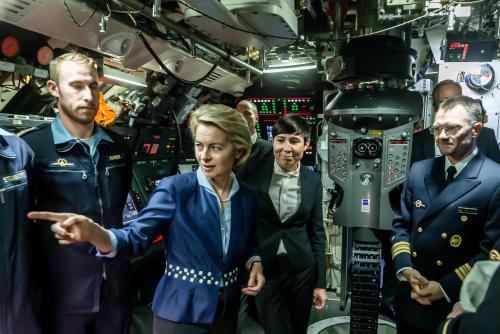

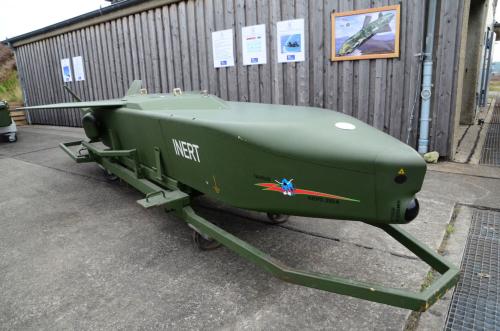
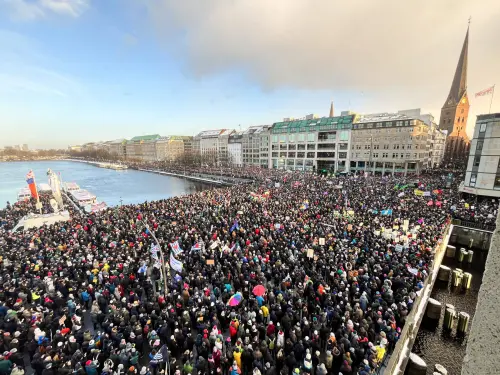

Commentary
Germany should pull together a European naval mission in the Gulf
August 7, 2019